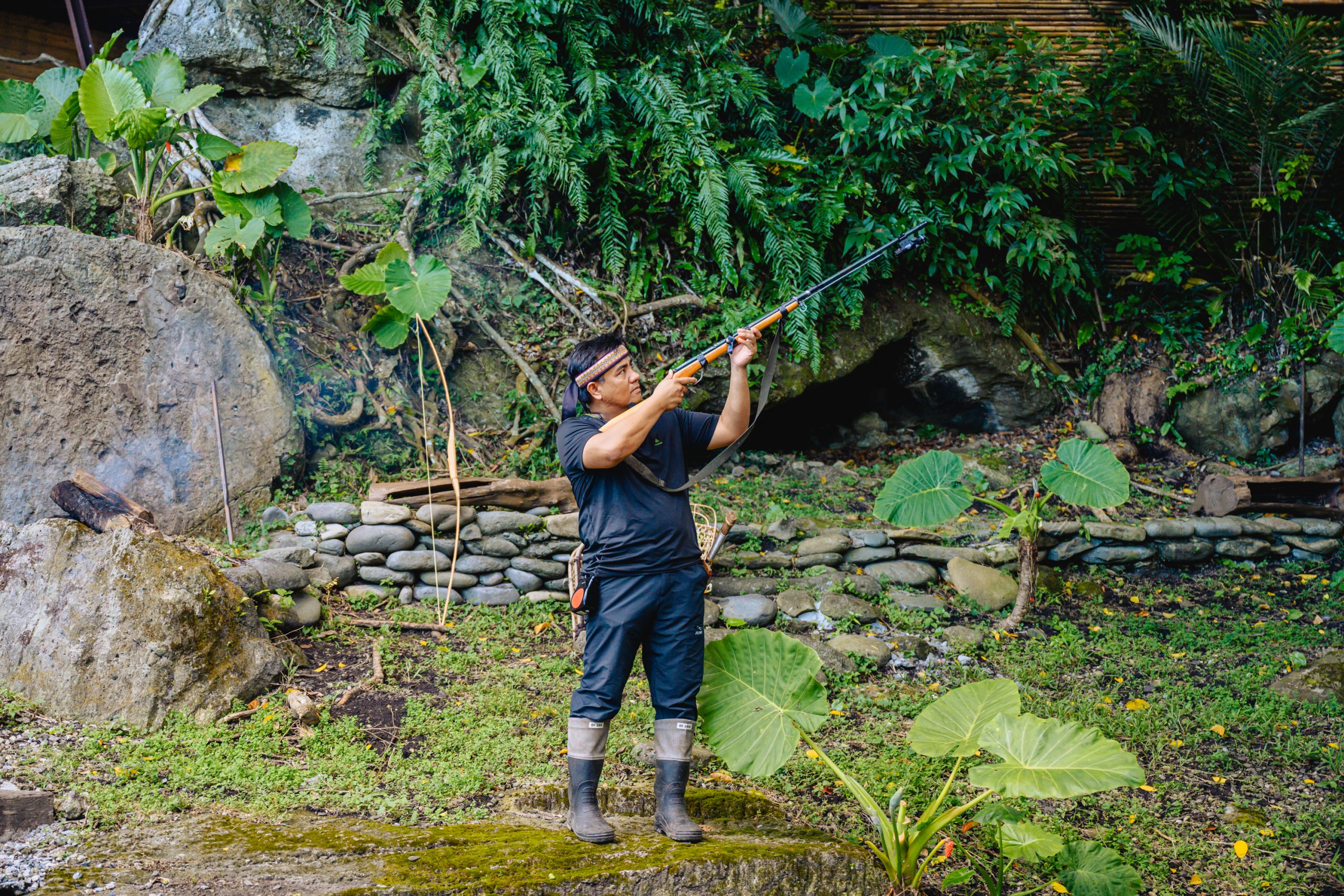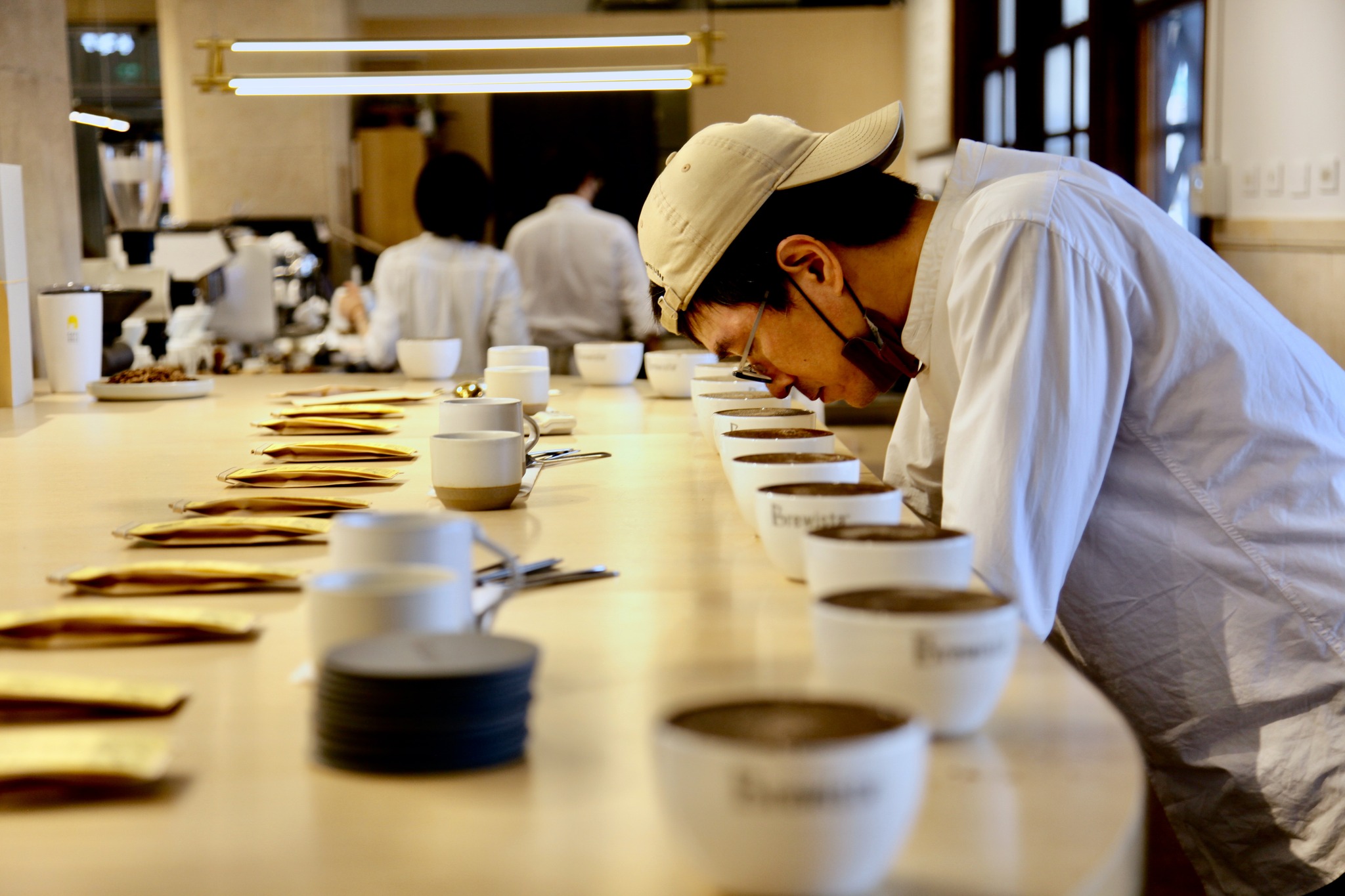Author CAT THOMAS
Photographer XHIN TOH
Editor Chris van Laak, Chih-Yi Chen
The Bunun tribe originally lived in the highest reaches of Taiwan’s Central Mountain Range, above all other tribes. Successive waves of migration eventually drove them from their lands to lower reaches. The descendant of one of these families, Xiao Ma (馬中原), runs Gao Shan Forest Tribal Ranch (高山森林基地) at the second location in his family’s migration path, where his grandparents lived.
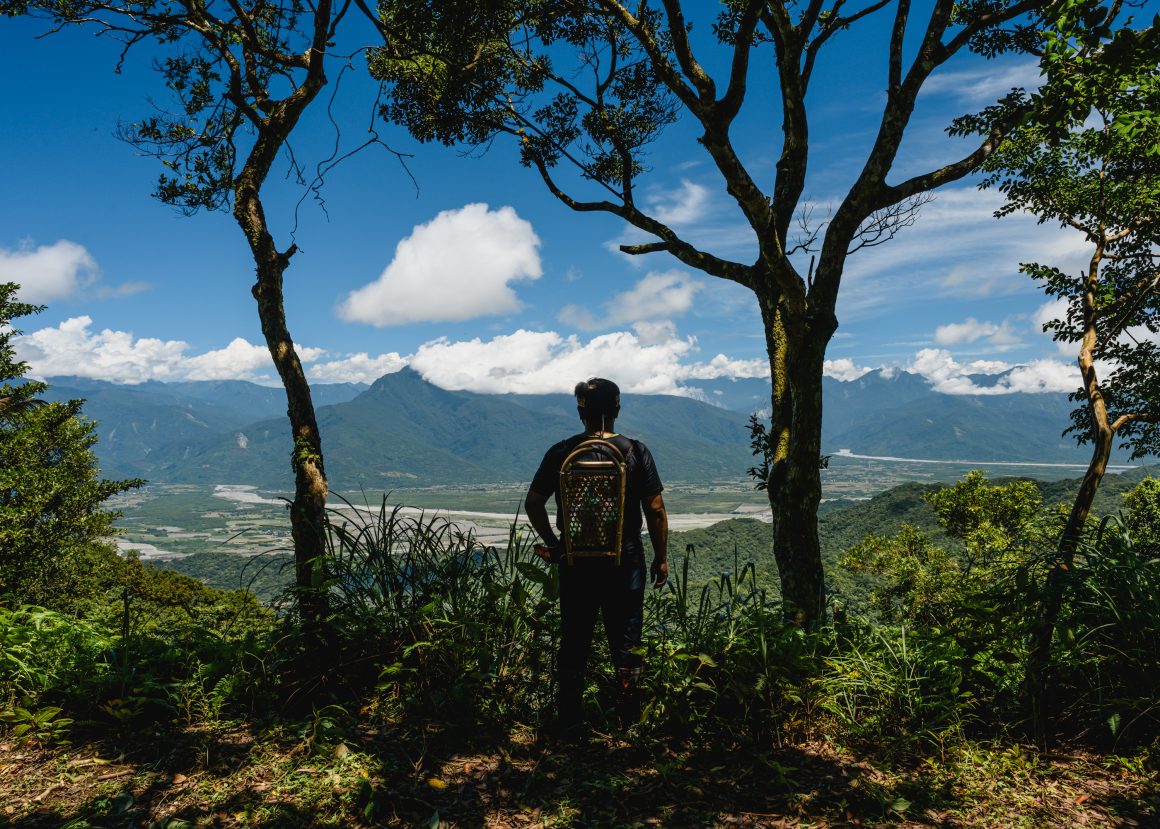
A peaceful village
The ranch is perched above Jiqi village (磯崎村), which is also home to Amis people, in Hualien’s Fengbin Township (豐濱). Like many youngsters, Xiao Ma left Jiqi to attend high school in Hualien City, before joining the army at 20. Following his retirement 20 years on, he was teaching at a school in Taipei and enjoying a “good life, but something was lacking,” he said, “there was a hole in my soul.”
He had kept in close contact with his home village throughout, paying regular visits to check in on tribal elders and provide support for youngsters. Like many villages, Jiqi offered little opportunity for the mid-generation and, lacking the crucial presence of younger parents, the Bunun tribal culture was fading.
Making change
In 2017, Xiao Ma decided to repurpose the family land to share his Bunun culture and provide much-needed employment opportunities. It was the first such Bunun endeavor in the area, and currently has 10 full-time staff.
“Through understanding their culture, the kids can fully understand themselves,” said Xiao Ma, adding that the ranch fills in a gap left by the decline of cultural parenting.
Visitors come from Taiwan and overseas for an immersive experience in Bunun culture, including a thorough explanation of traditional housing and the migration of the tribe. There’s also hands-on exploration of the hunting culture through exploring historic hunting paths and making a traditional knife, just as Bunun males have done through the ages.
Cultural deep dive
In the Bunun language, there’s no specific word for “hunter”; instead, they use “Mama’ngan tu bunun” (“men with sharp blades”). Traditional hunting knives are culturally significant, symbolizing maturity and the role of distributing the hunt’s bounty among the tribe.
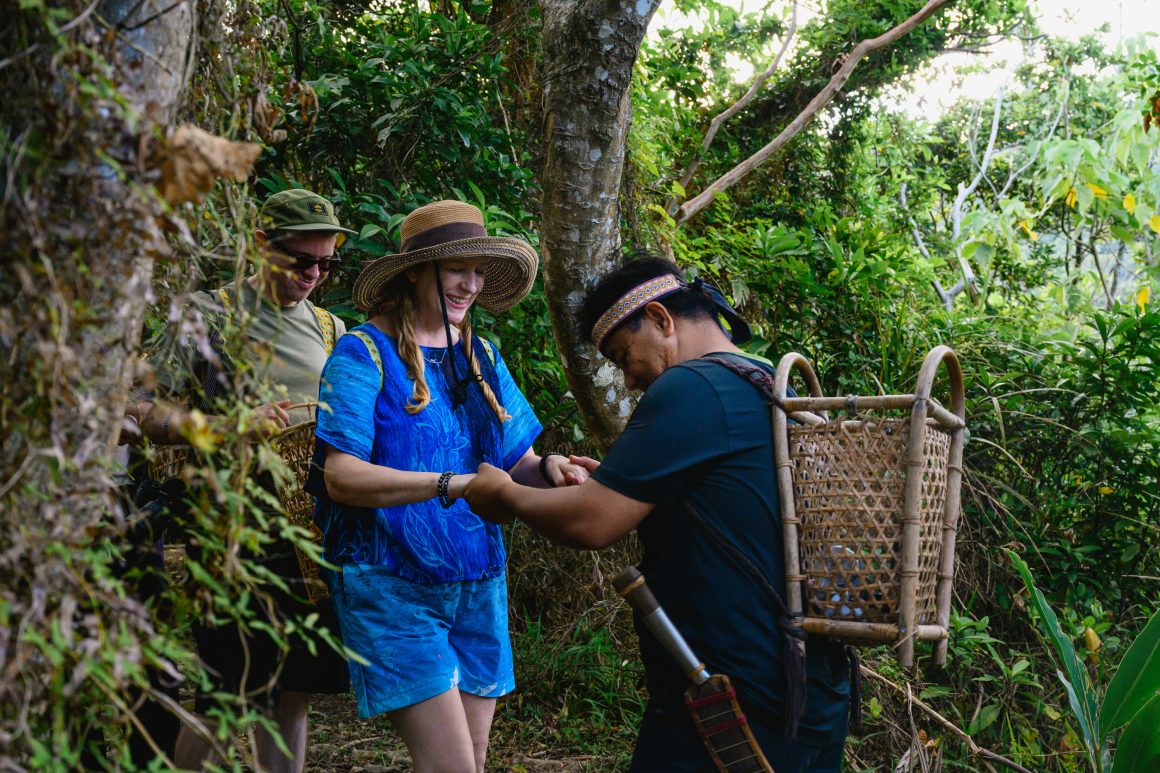
On the paths leading from the ranch to the new settlement by the sea, and up toward the Eastern Rift Valley, we were encouraged at times to close our eyes and walk in a chain paying attention to our remaining senses. At other times, plants and herbal remedies were found and their significance and uses explained. It was evident throughout that Xiao Ma has found his vocation in sharing his culture.
In addition to immersing ourselves in tribal traditions, we enjoyed authentic local cuisine at Haikayi Station
(嗨咖驛站), making the experience highly recommended for travelers.
Under the Milky Way
Hualien Hearyousay (海聽魚說) is a top accommodation choice, offering stunning sea views from its modern, charming rooms or during breakfast.
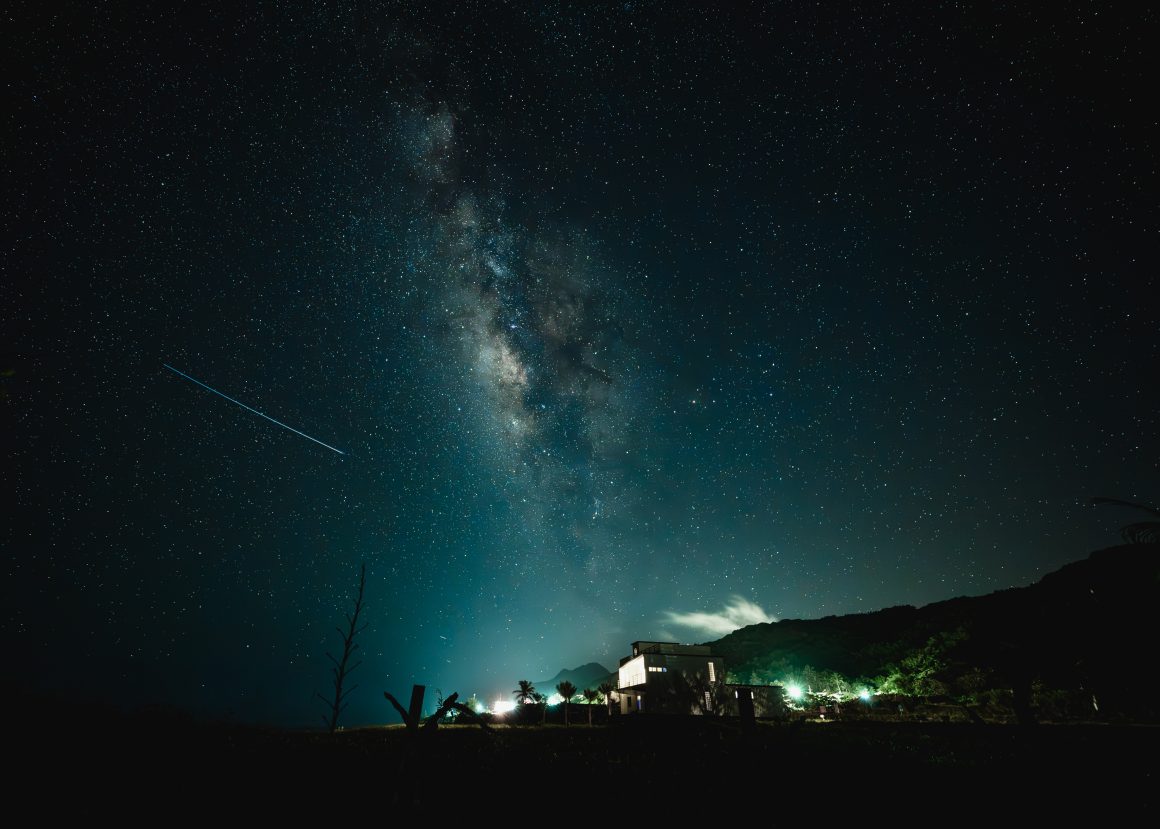
However, it’s also possible to camp overnight at the ranch. There are shower and bathroom facilities, as well as dedicated pitch spots. An evening BBQ can be arranged for guests.
At night the lack of light pollution in this area offers glorious stargazing.
There are also unobstructed views straight out to the east from the mountain, holding the promise of waking up to a stunning sunrise across the Pacific Ocean.
Nowadays Xiao Ma is content with his work. His former worries about the Bunun traditions no longer being passed down are largely resolved.
“I can see a future for me,” he said, “and a future for the kids.”
Pathfinder
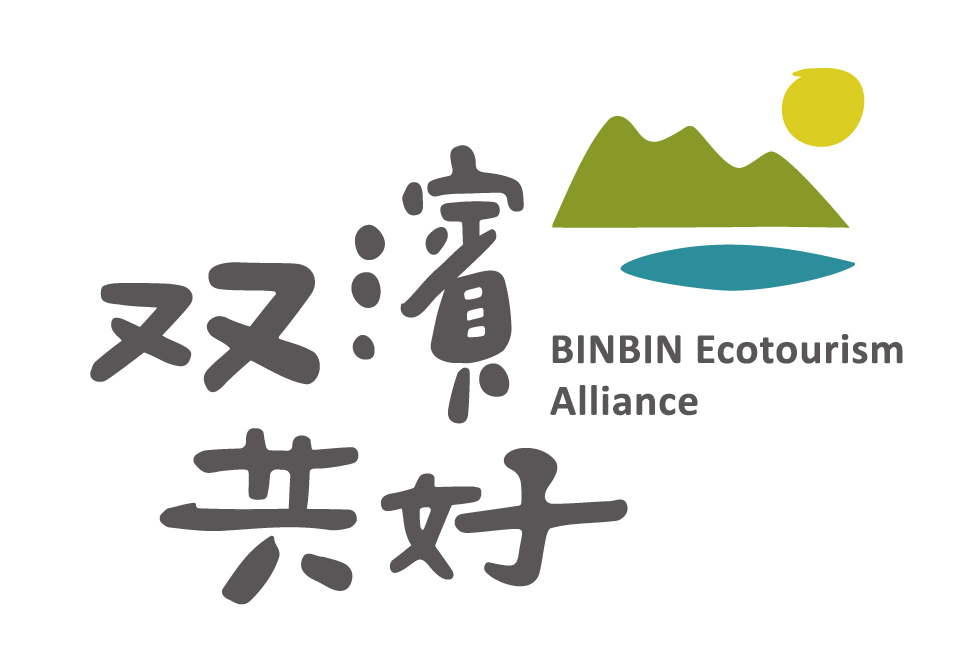
BinBin Ecotourism Alliance (雙濱共好聯盟)
The Binbin Ecotourism Alliance, consisting of over 60 partner shops, leads you through hidden gems and adventures across mountains and to the sea. Together, we share and thrive in the “Wall-less Tribal Lifestyle Cultural and Ecological Experience Village.”

